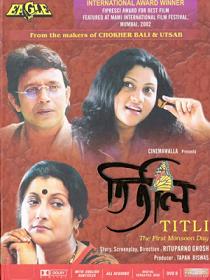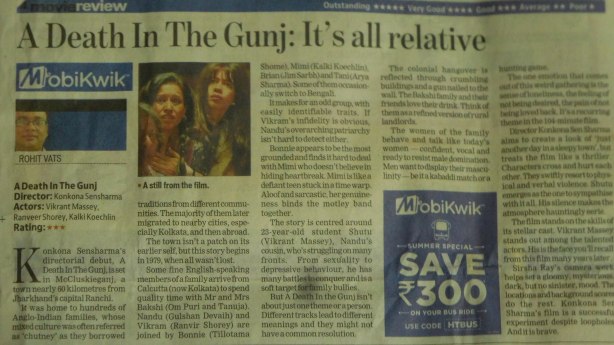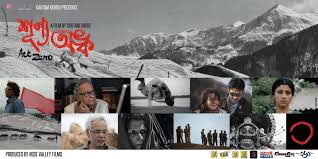
This morning I watched the Rituparno Ghosh directed film TITLI. This is probably the most romantic and poetic film in the repertoire of late Rituparno Ghosh. A rudimentary analysis of RG reveals his contribution to Bangla cinema in the following – adeptly using actors like Prasenjit and Dipankar Dey (Titli, Unishe April, Abhoman, Utsav) regularly, bringing big Bollywood stars to feature in his works, focusing his lens on women and the art world (Unishe April, Asookh, The Last Lear, Abhoman, Bariwali, Titli & others) and the fine exploration of intricate human relationships that permeates every single work of his.
In TITLI, through a chance encounter, a successful actor meets his ex-flame. Her daughter is obsessed with the star-actor. Though certain situations are forced, yet the beauty of the film can’t be denied and manifest in the manner the work deals with suspicion and pain that takes over when your loved ones keep a secret from you all through your life.
In this film, the mother (Aparna Sen) never revealed to her star-struck daughter (Konkana Sen Sharma) that she knew the object of her affection (Mithun). The love of the daughter for the star dissipates gradually – firstly when he discovered that her mother didn’t reveal to her that she actually knew Rohit the star-actor (Mithun) & finally when she hears of his marriage with a German journalist.
In the final sequence, she is shown hugging her mother ending the film which also makes a passing judgement about the need to lead a conjugal life.
Rating: 3.5 out of 5




